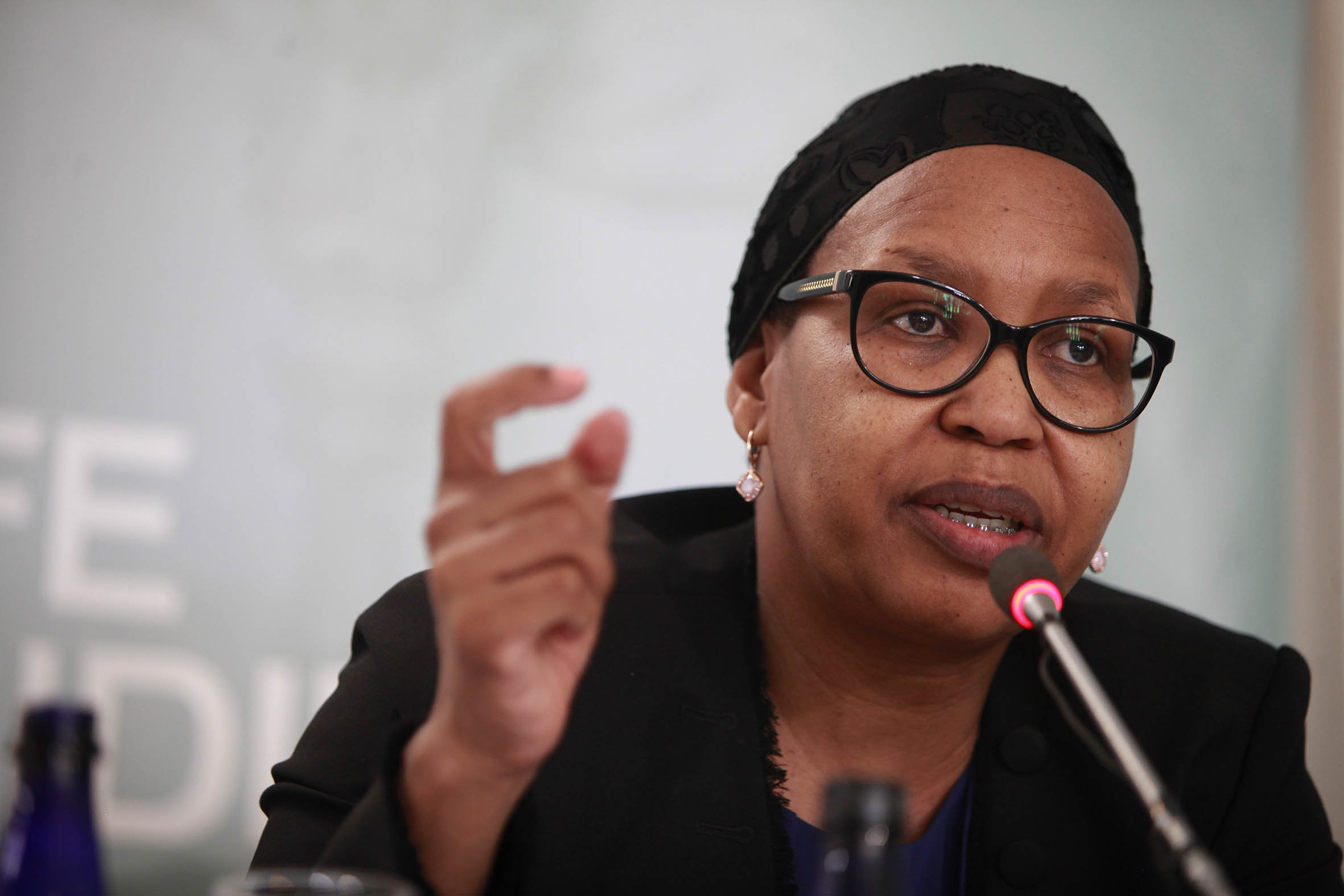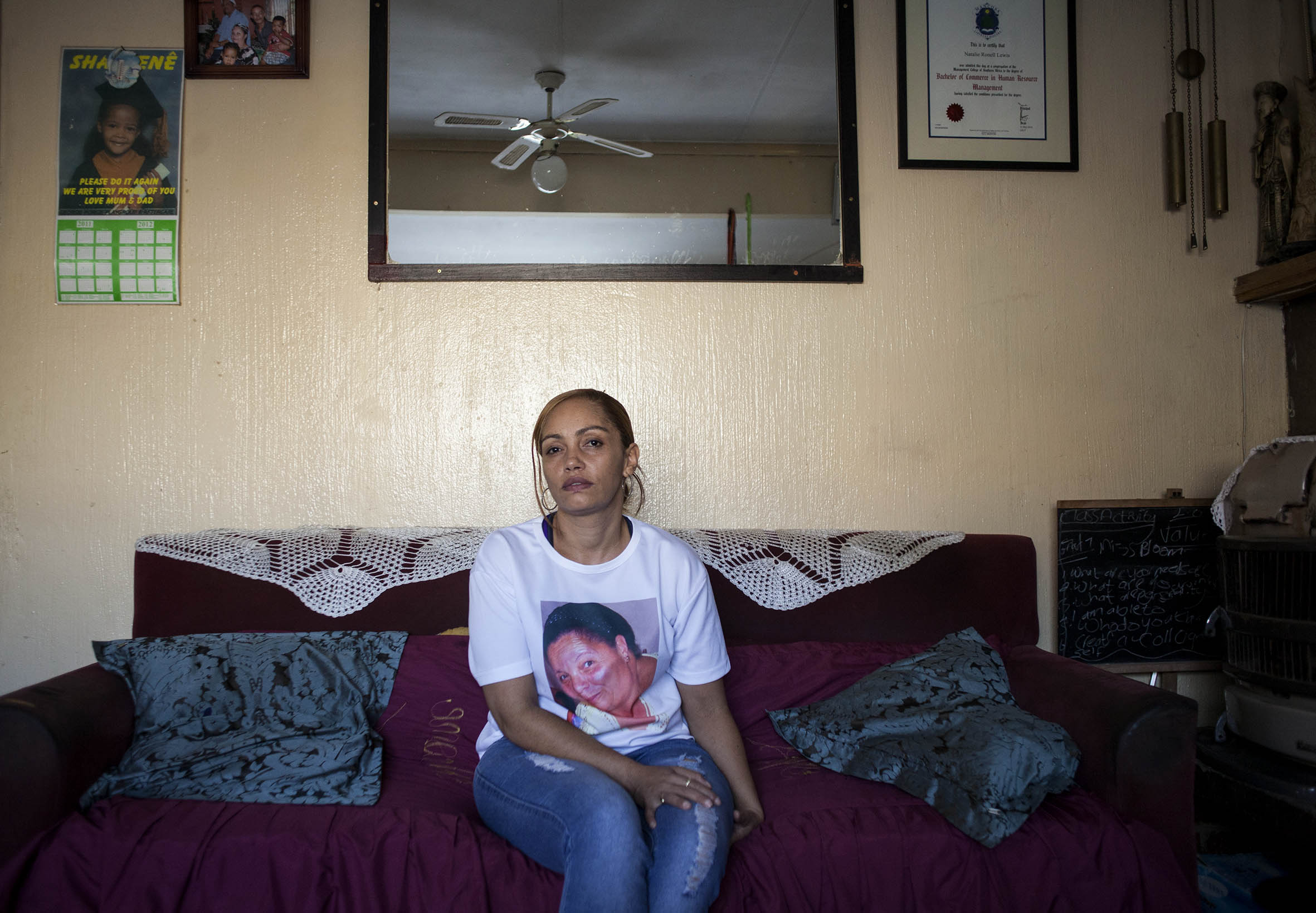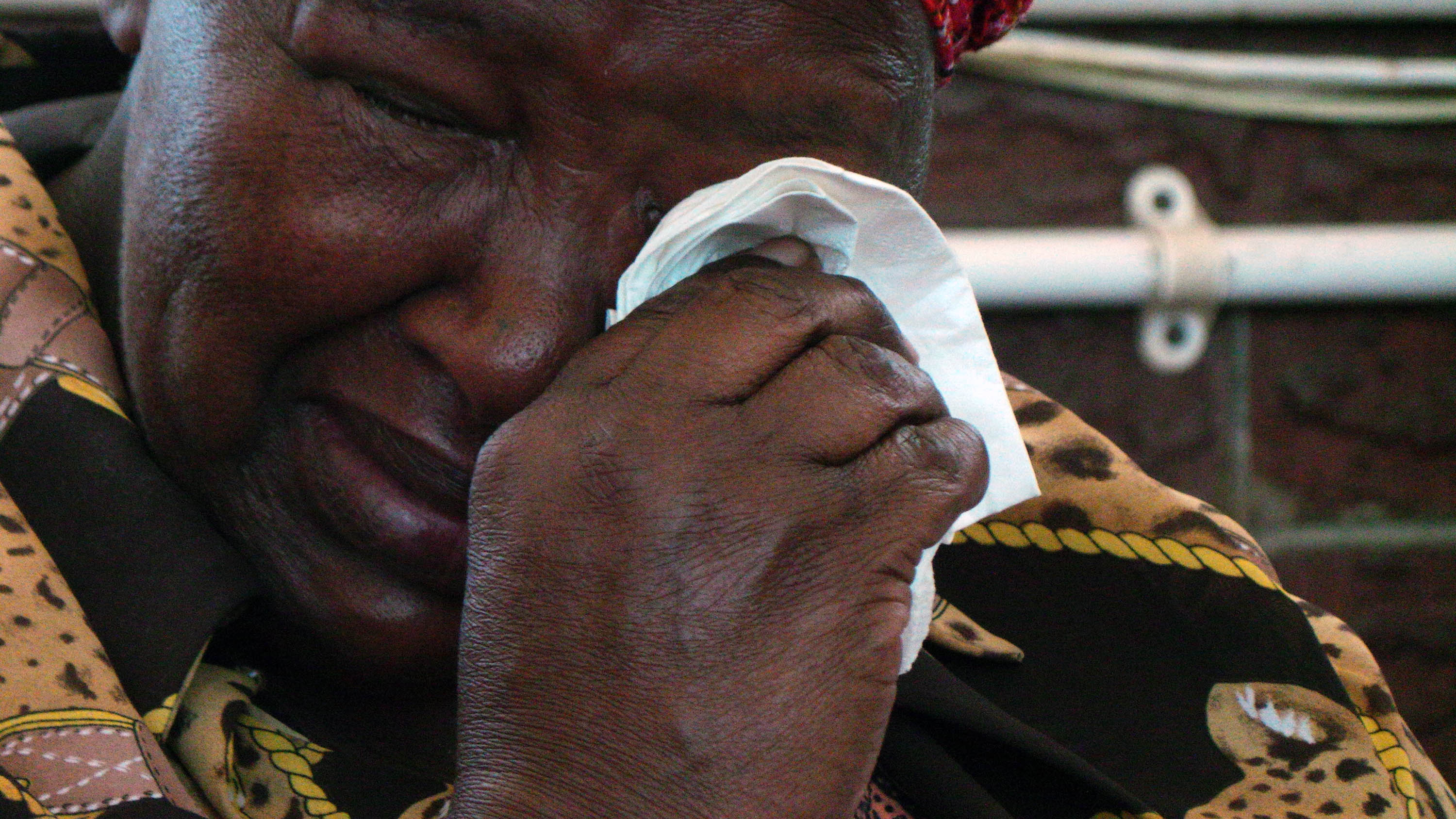Remembering the dead: Mental health activists protesting outside the Life Esidimeni arbitration hearings in Johannesburg.
NEWS ANALYSIS
Long before the 144 psychiatric patients began dying, activists in Gauteng had been waving their desperate red flags.
A year before that, in 2015, the warnings were everywhere. In letters to officials, in advocacy statements, in court papers, in the media.
In the fearful eyes of patients’ families.
Mental health activists were urging then health MEC Qedani Mahlangu not to end her department’s contract with the private hospital group Life Healthcare, which looked after almost 2 000 state patients.
But she refused to heed their advice.
Instead, Mahlangu transferred them to ill-equipped, often fraudulently licensed community-based organisations – many with no experience in mental healthcare.
Activists predicted that patients would die. Again, their alarms spurred no action.
 Former Gauteng health MEC Qedani Mahlangu ignored expert advice urging her not to move state mental health patients to NGOs. (Oupa Nkosi)
Former Gauteng health MEC Qedani Mahlangu ignored expert advice urging her not to move state mental health patients to NGOs. (Oupa Nkosi)
About a year later, in January 2017, a tragedy of a different kind unfolded. This time around it was a killer bacterium that had found its way into South Africans’ food, in particular into polony produced by Enterprise Foods.
By March 2018 the bacterium, listeria ST6, had claimed the lives of 183 people. Almost 1 000 people had been hospitalised with symptoms. And scientists expect the death toll to rise.
For years prior to this, food safety experts had been cautioning government that the country had far too few environmental health inspectors to enforce food safety regulations. That municipalities couldn’t cope with managing and funding food safety functions. That there were no regulated limits for the presence of listeria in ready-to-eat products, leaving food production companies to their own devices. That the law was incomplete and confusing.
But few officials listened to them. Those who did hit their heads against the granite that is bureaucracy and its accompanying financial costs.
South Africa’s Life Esidimeni tragedy and listeriosis outbreak have more than a few commonalities.
Read how South Africa’s medical detectives tracked the source of the outbreak.
At the very least, both incidents exposed a cracked public health system. The incidents happened because nongovernmental organisations, as in Life Esidimeni’s case, and meat factories in listeria’s, operated within systems that allowed them to get away with murder.
Systems with checks and balances in theory, but barely any in practise – because the people who need to implement these regulations are often not equipped to do so, whether it’s because of a lack of resources, incompetence or a sheer lack of will.
“Life Esidimeni and the listeriosis crisis showed there is a breakdown somewhere between people speaking out and government being responsive. We can’t allow for crises to emerge before we respond,” says Sasha Stevenson, an attorney at the social justice organisation Section27. Stevenson is one of the lawyers who represents the families of patients who died in the Life Esidimeni tragedy.
“In the case of Life Esidimeni, there seems to have been a feeling that officials aren’t accountable to the public, but rather to an unnamed higher official,” Stevenson says.
Both catastrophes could have been prevented, had provincial health departments and, in the case of listeriosis, also the departments of agriculture, forestry and fisheries and trade and industry, reacted earlier.
“Had the Gauteng health department listened to the concerns activists were raising about the devastating health impact, pressure on the rest of the system and mental health users not being safe, things would have been fundamentally different,” Stevenson says. “Most Life Esidimeni deaths could have been avoided.”
In the case of listeria, meat factories should have been monitored much more strictly and professionally, using more stringent regulations. But experts say the country has less than half the environmental health practitioners required to inspect food factories regularly. Omitting what should be standard inspections means they can’t detect problems in time.
 Natalie Lewis lost her mother and second cousin to listeriosis. (Oupa Nkosi)
Natalie Lewis lost her mother and second cousin to listeriosis. (Oupa Nkosi)
When the Van Neels family from Eldorado Park in Johannesburg lost Sandra van Neels (56) to listeria in December 2016, health inspectors called them to ask what she had eaten before she became ill. They had no idea why they were asked these questions, because no one explained the causes of the disease to them.
Again, the system failed them.
They say health workers at Charlotte Maxeke Academic Hospital, where Sandra was diagnosed, didn’t have time to talk to them. Instead, the family was given a pamphlet with medical explanations of listeria that made little sense to them.
Inspectors didn’t help either.
“When we asked the inspectors why they wanted to know what my mother had eaten, they refused to tell us why. They never called my father again,” Sandra’s daughter, Natalie Lewis, says. “Had the health department or the hospital sent out health inspectors, they would have found polony, my mother’s favourite food, in this house. They would have found listeriosis somewhere in the fridge.”
Health Minister Aaron Motsoaledi has said that municipalities often don’t want to invest in environmental health practitioners. As with Life Esidimeni, he argues that he has little control over how policies are implemented in provinces because health MECs report to premiers and not to him.
Provincial health systems are plagued by corruption and mismanagement. To such an extent that half the nine provincial health departments have been placed under either national or provincial administration over the past seven years.
When something goes wrong, more often than not no one is held accountable.
[WATCH]: How to make sure your fridge is listeria-free
[multimedia source=”http://bhekisisa.org/multimedia/2018-03-07-video-how-to-clear-your-fridge-of-listeria”]
At the Life Esidimeni hearings not a single senior Gauteng health official, including the former MEC, offered to take personal responsibility for their decisions. Families attending the hearings regarded Mahlangu as so insincere and aloof that they walked out when the judge asked her to apologise.
Yet Mahlangu felt comfortable enough with her actions to turn up at one of President Cyril Ramaphosa’s community health walks last weekend. In a “Vote ANC” T-shirt, smiling and waving, she joined the president as he strode the streets of Soweto.
Journalists asked Ramaphosa for his opinion on Mahlangu’s actions. He told News 24 Mahlangu should not be rejected, that she had been held accountable for her actions by being asked to resign from her position and appearing before the arbitration hearings.
Health activists were outraged.
“It seems comrades will still be comrades before being moral leaders,” social justice organisation Section27’s executive director Mark Heywood said on Facebook.
Heywood continued: “It’s not good enough to say she gave evidence at the arbitration. Actually what she gave was a pack of lies.”
 Arrogant politicians compelled families at the Life Esidimeni arbitration to stage walk-outs. (Shayne Robinson)
Arrogant politicians compelled families at the Life Esidimeni arbitration to stage walk-outs. (Shayne Robinson)
Some ANC insiders, though, are defending Ramaphosa, saying he was “caught off guard” by Mahlangu’s unplanned presence. This of course suggests that the fledgling president has other opinions about her actions.
If Ramaphosa indeed has these opposing views about Mahlangu, say activists, then let’s hear them as soon as possible.
This is what’s expected to unfold within the next few weeks: On Monday, March 19, Judge Dikgang Moseneke will announce how much compensation the government must pay the families of the victims of the Life Esidimeni tragedy. Gauteng health workers say they are bracing for cuts to the department.
Many families of listeria victims will join the class action case against Tiger Brands, which owns Enterprise.
Pots of money will be forked out on the consequences of inaction, money that could have been spent far better on prevention.
And, back at their homes, the 80-plus mothers who lost their newborn babies to listeriosis, mostly because it passed from them to their infants in the womb, will be grieving and anxious. Many will be blaming themselves for their babies’ deaths. They, and not the government officials or failing systems involved, will be judging themselves guilty.
Because in the cases of both listeriosis and Life Esidimeni there are, indeed, none so blind as those who see, but choose not to.